Why menopause is so hot right now: Meet the women behind the cultural shift
Celebs are talking about it, big business is profiting off it and the world is finally taking notice of it. Why menopause is finally undergoing a long-awaited cultural shift.
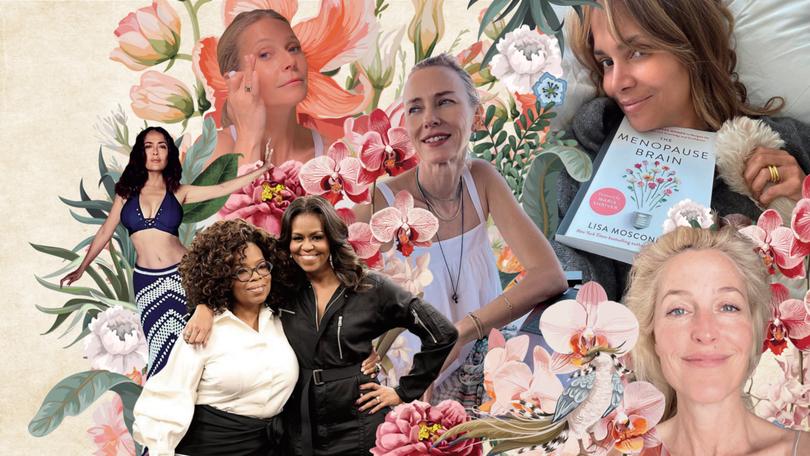
Halle Berry is taking her latest role very seriously.
It’s not a part that’s destined for Oscar buzz — you won’t see her turning heads on the red carpet throughout its glitzy promotional campaign.
The role, though, has seen her garnering praise and support from women across the world.
Sign up to The Nightly's newsletters.
Get the first look at the digital newspaper, curated daily stories and breaking headlines delivered to your inbox.
By continuing you agree to our Terms and Privacy Policy.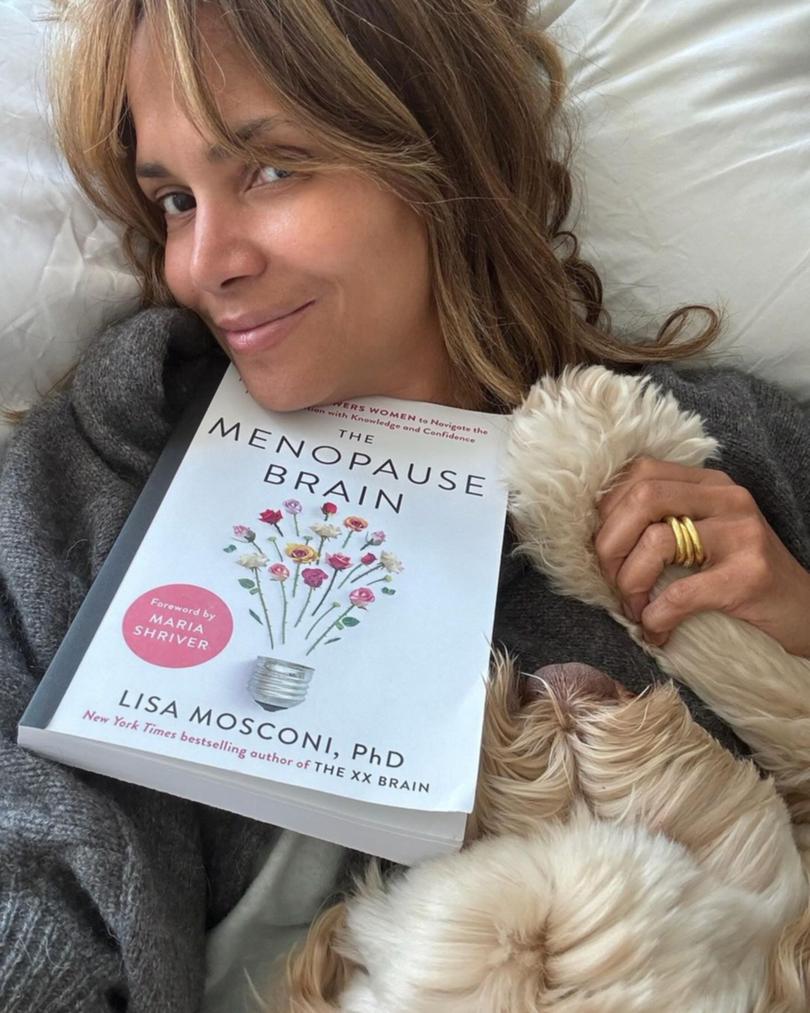
During a recent shoot, Berry didn’t mince her words when delivering the script, powerful lines delving into a topic that has long been shrouded in shame, secrecy and silence.
“If menopause was a man’s health issue, we would have it way more figured out by now,” the actor said to US Senator Cory Booker in a conversation posted to her Instagram account.
“There’s 1.8 billion (US) dollars lost every year because women have to take time off work. That’s an everybody problem. That’s not just a women’s health issue.”
From divulging intimate parts of her sex life — including a herpes misdiagnosis that turned that out to be a symptom of perimenopause — to addressing long held myths and stereotypes about middle age, it’s a conversation Berry has been starving to devour, a “dirty word” she wants to transform.
“It’s something that we’re dying to do (talk about menopause),” Berry told Women’s Health. “It’s something that we’ve been deprived of, and it’s something that we want to share with one another. We just need the permission to do it.”
Berry, 57, isn’t the only A-lister using her profile to thrust the complex conversation into the global lexicon.
Australian star Naomi Watts, 55, has similarly entered the chat, casting any ego or taboo aside to offer up her own experiences in the hope of shattering the code of silence.
Watts was just 36 when tests revealed she was nearing menopause, a heartbreaking realisation to receive in the midst of navigating an equally poignant time in a woman’s life — trying to get pregnant.
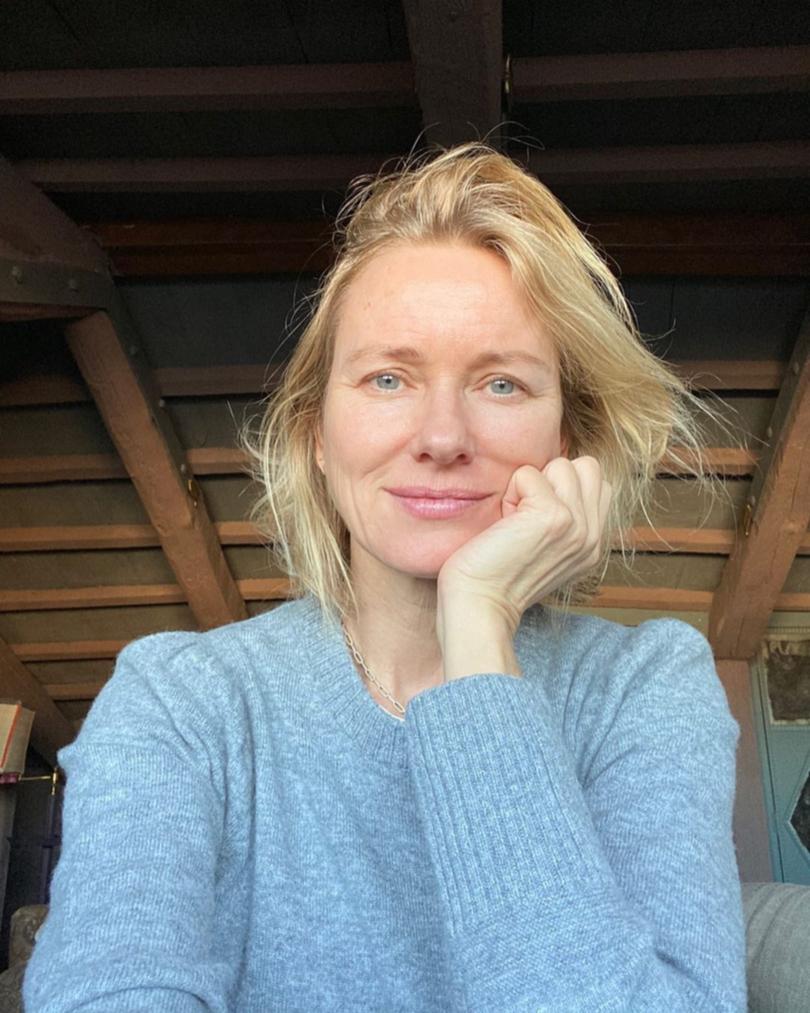
Fast-forward 19 years, Watts was able to conceive twice, yet the feelings of shame lingered for a long time.
“It’s not a disease, it’s not a failure. It’s just something that was always supposed to happen,” she told Marie Claire.
Their conversations may have started in the media, but the sentiment is now spilling into the worlds of women without a gold statue on their shelf, to a resounding sigh of relief.
What was once a discussion initiated in the privacy of a doctor’s office in hushed tones, about a time of life that had historically been pitched as an era of doom and gloom, is now playing out loud and proud on podcasts, shared on social media, and written into television and film scripts.
On a local front, menopause is (slowly) being considered in the workplace, advocated for in Parliament, and bringing women together at conferences.
And some of the loudest voices in the chorus can be found in Perth, inside a medical clinic in Mt Lawley.
Hera, a specialist menopause and women’s health clinic, opened in August 2023 with the intention of providing evidence-based medicine tailored to each unique woman that walks through its doors.
Banish any preconceived ideas of a clinical or intimidating office; its founders Dr Sunita Chelvanayagam and Dr Michelle Cotellessa have built a welcoming space on the solid foundation of a shared passion and vast knowledge of women’s health.
Bringing the concept to fruition had been a lifelong dream for the friends (the duo has more than 40 years of combined medical experience between them) who have long known that women need more time, education and understanding than is offered in a regular GP appointment.
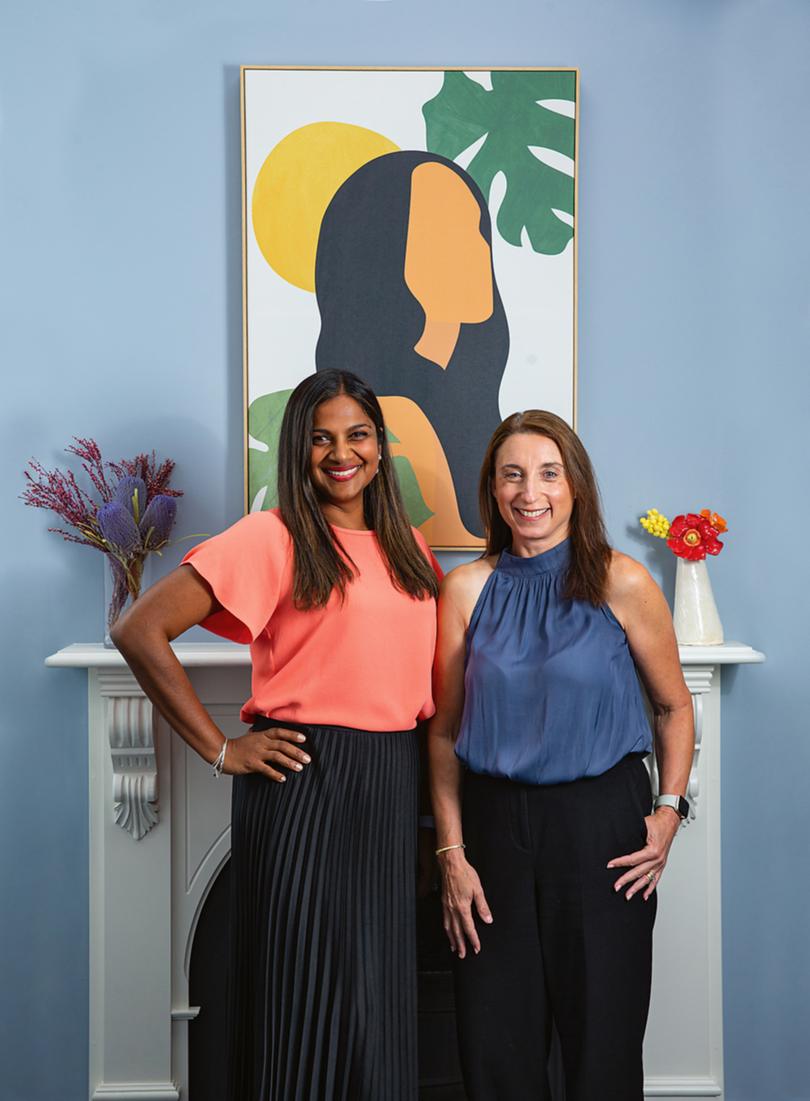
These are women who may have seen five different doctors, sometimes specialists, looking for answers to questions that went disregarded or ignored.
Without doing any marketing, Hera’s books have quickly filled months in advance.
“Women in our society are conditioned to not complain and to suffer in silence. To take from Barbie — the patriarchy still kind of reigns — but things are beginning to change, there is a different kind of female revolution out there. Women are finally starting to take charge of their own health recognising that it is vastly different from a man’s journey,” says Chelvanayagam.
“For example, perimenopause hadn’t been mentioned in Parliament until last year by Greens Senator Larissa Waters.”
Waters is leading the push towards a Senate inquiry into the financial and health impacts of menopause and perimenopause.
Menopause — defined as when a woman stops having monthly periods — typically occurs between the ages of 45 to 60, whereas perimenopause begins much earlier.
Around 32 per cent of women in Australia are experiencing symptoms they attribute to menopause; 70 per cent of this number are employed.
As Berry mentioned, according to a new study by the prestigious Mayo Clinic, $US1.8b ($2.76b) is lost every year in America because women have to take time off work for menopause-related reasons. That number rockets to $US26.6b annually when medical expenses are added.
The Australian Institute of Superannuation Trustees estimates local losses to be more than $17b, if just 10 per cent of Australian women were to retire early due to severe menopause symptoms.
In many cases, these women could continue thriving in the workplace with better support and a more tailored approach to their symptoms.
Progress — celebrities and medical experts agree — starts with research.
“Medical research has largely been based on men, which we’re realising increasingly means medication and other treatments have been derived from a 70kg male. A lot of medicine hasn’t been based on a female’s dynamic physiology … it’s quite terrifying,” says Chelvanayagam.
“Until recently we’ve ignored the impact of female hormones on the brain, in terms of not just perimenopausal depression but reproductive depression as a whole (PMS, PMDD, postnatal depression, perimenopause) and the impact it’s had on mental health.
“So many things could have just been put down to anxiety and depression which are simply the tip of the iceberg.
“Even the impact hormones have on neurodiversity and the brain is fascinating. We are also realising that oestrogen is not just a female hormone and testosterone a male hormone. Both occur in both sexes and have important roles.”
When former Vogue China fashion editor Grace Lam, now based in Perth, noticed her periods becoming irregular at age 48, she initially wondered if she was pregnant. Menopause wasn’t something that had been readily discussed with her mum, sisters or aunts.
She wasn’t, but Lam knew something was wrong — she hadn’t slept in weeks.
A GP brushed it off, offering her sleeping pills and denied the possibility of hormone replacement therapy (HRT). Lam knew there was more to it, and went down her own rabbit hole to look for information.
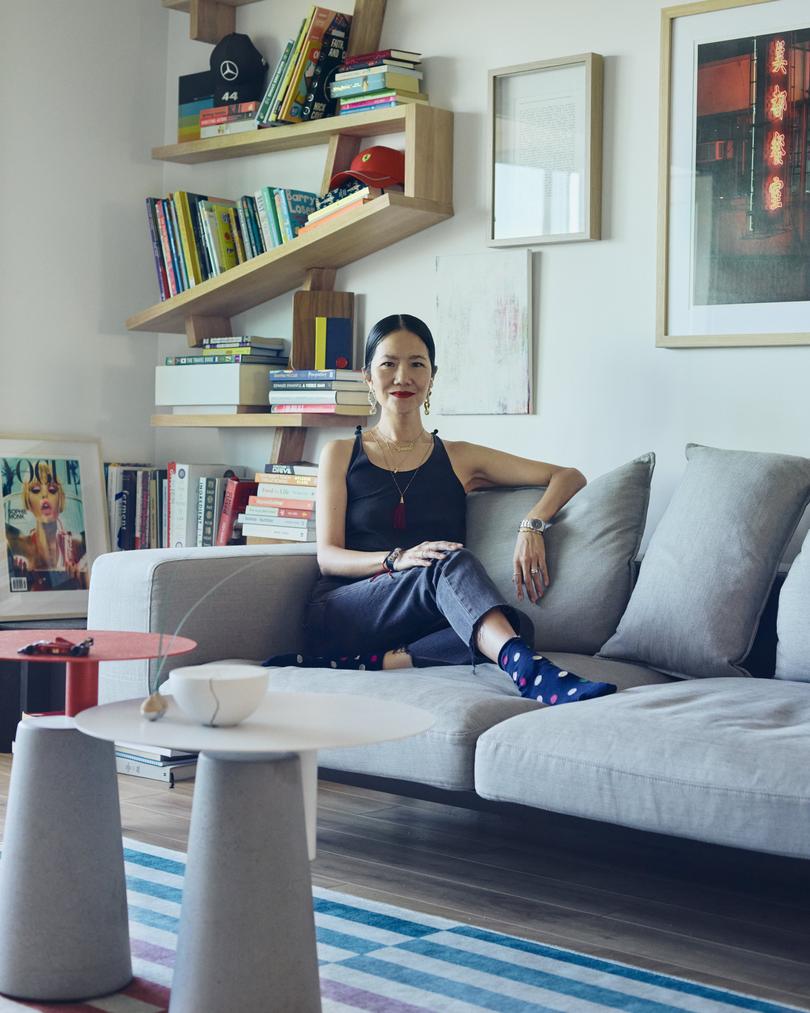
She is collating her findings, and interviewing experts and a diverse array of women experiencing menopause around the world, in a social media series titled meNOTpause.
“The whole point of this journey is to tell women that we’re all different; there is no one-size-fits-all, and therefore you need to find your own path into this,” the fashion director says.
“But you need to have patience, especially if you take HRT because finding the correct medication strength for it to work could take months so don’t give up too quickly and do your own research. Share your experiences with other women so you might not do what they’ve already done.”
Lam practises what she preaches, dedicating time to style women (over video and in person) in their 50s and above to make them feel confident in their changing bodies, and seeks assistance from her son to put on her HRT patches. She also praises Perth’s Dr Lucy Caratti for her treatment and support.
“We have to educate everyone — men and boys, girls, the workplace, everyone — to normalise it so it’s not such a taboo topic,” she says.
“Women won’t be afraid to bring it up at work without feeling like they might be made fun of or discounted of their ability as a career woman. I think people need to be more understanding and to be our ally.”
While Hollywood, local experts and advocates agree that education across the board is vital to ensure women feel heard and supported, profiting off menopausal women is something they don’t see eye to eye on.
Often referred to as menowashing, or the menopause gold rush, big business is spruiking products for every receptor of the body, to a group that is as powerful as it is vulnerable.
Both Watts and Berry both have skin in the game.
Watts is the founder of Stripes — a menopausal wellness brand — that sells an array of playful, holistic-led products. The Vag of Honour hydrating treatment promises potent relief from vaginal dryness, while The Cool Factor claims to help mist away hot flushes.
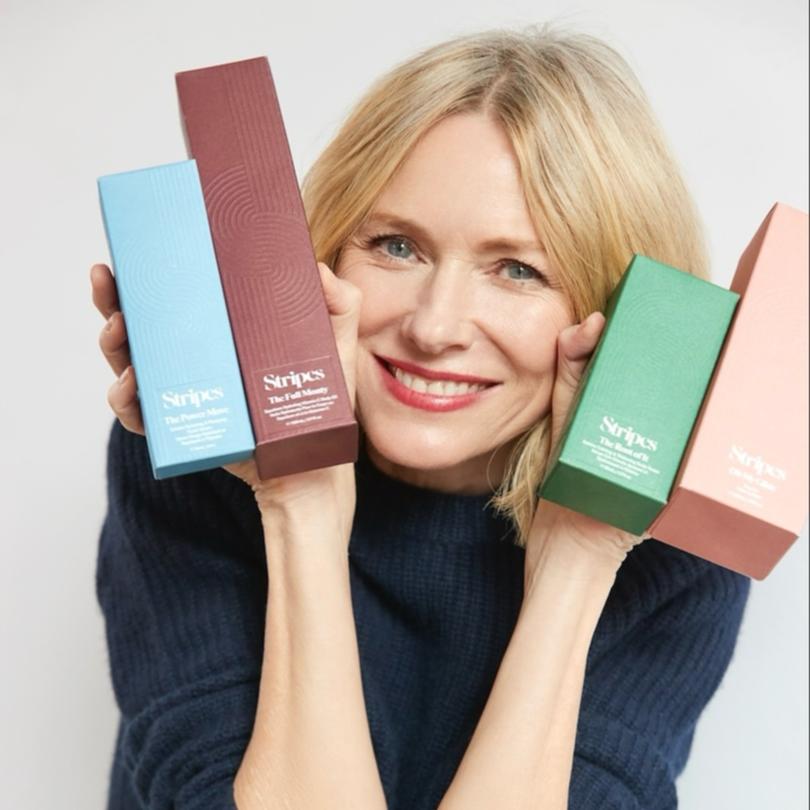
Berry founded re•spin, an online perimenopause and menopause community that features wellness blogs and a marketplace of products that work in “nourishing and strengthening the body, mind and soul, enlivening the spirit and giving back to others in gratitude”.
The global menopause market is projected to reach $US24.4b by 2030, according to the Grand View Research, Inc.
In many cases, innovative fem-tech businesses are improving the life of women, while others — as Cotellessa explains — are adding a menopause label and then tripling the prices of items that are no different to similar ones on the market.
“When women are struggling with symptoms that are impacting on their sleep, energy and mood, they will often look at all options available that are marketed as being as helping for their symptoms,” she says.
“Unfortunately many of these products are expensive and have not been proved to be effective or safe. Many of my patients have come to me with stories of just being at wit’s end and are willing to try anything.”
Many of Hera’s patients spend big money on a wide range of anti-ageing or weight-loss goods, supplements and products that aren’t TGA approved, many bringing in tote bags of items they’re unsure about.
“What we need to remember is perimenopause and menopause care needs to be individualised and patient choice is important,” Cotellessa says.
But as the saying goes, knowledge is power. While the conversation might not be perfect, and there may be many tote bag show-and-tells to come, the shedding of stigma around an experience that will impact every woman is more impactful than any Oscar win.
